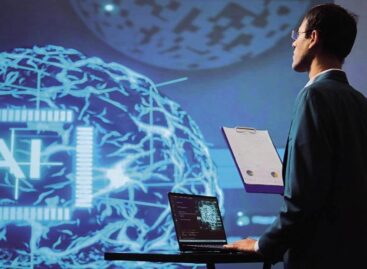K&H: why do you have to think in a sci-fi way?
Although the use of artificial intelligence (AI) is spreading faster and faster among companies, even experts cannot say when machine intelligence that functions similarly to human thinking will appear.

AI is already turning our usual lives and working methods upside down, and in addition, concerns, voices warning of dangers and urging regulation are increasing.According to Balázs Németh, K&H’s head of innovation, has AI reached the level of development where we have to think about what kind of AI we want in the future? One that makes the most important decisions in a black box, or one that is inherently accountable and transparent?
Curiosity is a sign of intelligence
IT professionals call the level of machine learning that already models cognitive processes “active inference”. An AI based on such foundations would have assumptions about the world around it and would immediately want to learn more about it: in other words, it would be curious. This would be a huge leap compared to current state-of-the-art artificial intelligences, such as OpenAI’s ChatGPT or Google’s Gemini, which only evolve as much as they are trained. In other words, after the completion of their preparation, they essentially freeze, they cannot learn any more.
Related news
The development of artificial intelligence may pose a challenge, according to an international survey
🎧 Hallgasd a cikket: Lejátszás Szünet Folytatás Leállítás Nyelv: Auto…
Read more >K&H: 16 thousand kilometers per year, 28 thousand forints per month for fuel – motorists’ budgets remain stable
🎧 Hallgasd a cikket: Lejátszás Szünet Folytatás Leállítás Nyelv: Auto…
Read more >Related news
Discover the solutions of the future on Startup Island! (Part 1)
🎧 Hallgasd a cikket: Lejátszás Szünet Folytatás Leállítás Nyelv: Auto…
Read more >








